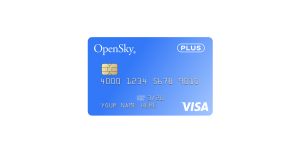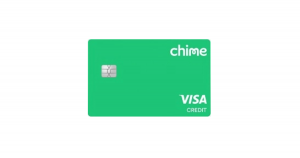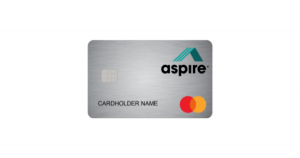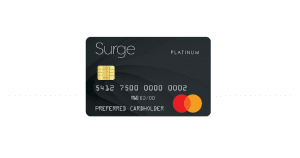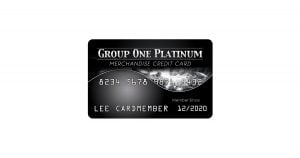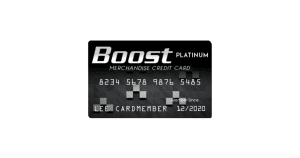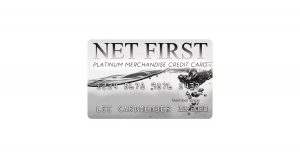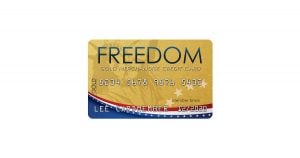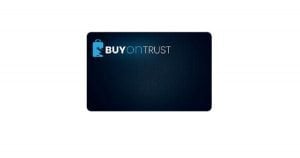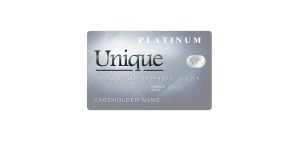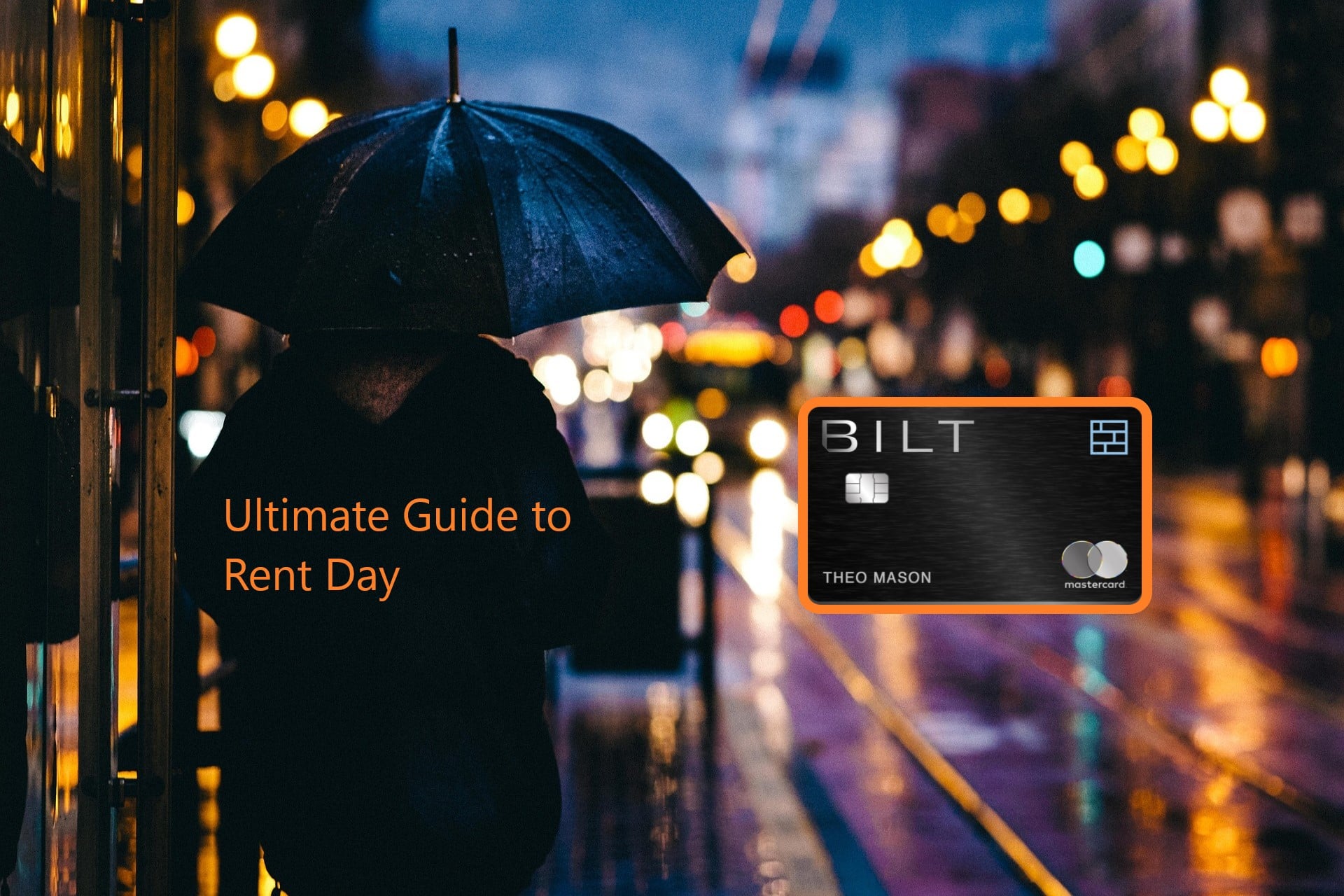Last updated on January 3rd, 2024
If you don’t have a perfect FICO Score, have experienced bankruptcy or other financial hardship, or are just new to credit entirely, there are plenty of excellent credit options that can help you improve your financial health and build credit with responsible use. Building credit takes time and dedication – but offers numerous benefits. While qualifying for your first credit card may seem complicated, some credit card options are more accessible to apply for than others. Here are some of our top picks for the easiest credit cards to get for bad or poor credit scores or no credit history:
At a Glance
Table of Contents
Yes, You Can Get a Credit Card with Poor Credit
Applying for a credit card with subprime or poor credit can be daunting. With so many ads and mailers for luxury offerings with complimentary lounge access and 50,000 bonus miles, it often looks like nothing for those looking to start fresh.
But don’t worry.
You can get a credit card with bad credit, but it won’t have rich rewards or exclusive perks. It will likely be a basic card to build or rebuild your credit. Secured cards are the best option for bad credit as they require a security deposit. This reduces risk and makes them easier to obtain. However, approval is not guaranteed, and income verification is still necessary.
Other options for individuals with bad credit include unsecured cards that do not require a deposit but often have high fees. Some startup credit card companies offer cards with no credit checks and low or no fees, but they may have drawbacks. Store credit cards are easier to obtain but usually have low credit limits and high-interest rates. Here are our best credit card recommendations for bad credit and resources for those with bad credit and cards to avoid.
What are the Easiest Credit Cards to Get?
If you are struggling to find a new credit card because of bad or poor credit, why not consider the following offers:
Secured Credit Cards
Secured credit cards are commonly recommended for individuals with bad credit. These secured credit cards for bad credit require a security deposit, which serves as collateral and minimizes the lender’s risk. The deposit is typically equal to your credit limit and is refundable when you close the account or upgrade to an unsecured card. This means a $1,000 deposit equals a $1,000 limit.
The deposit depends on the applicants and how much they can afford to put down, though many cards require a minimum of at least $200. Secured credit cards report your payment activity to the credit bureaus, helping you establish a positive credit history.
Best for No Annual Fee: OpenSky® Plus Secured Visa® Credit Card
Looking to boost your credit but hoping to avoid an annual fee? For too long, the $0 secured credit card market was cornered by banks like Capital One, which provided a no-fee secured card with its Platinum Secured Mastercard. Now, more and more high-quality options are appearing, with the OpenSky® Plus Secured Visa® a particularly enticing offer.
OpenSky® Plus Secured Visa® Credit Card
OpenSky® Plus Secured Visa® Credit Card
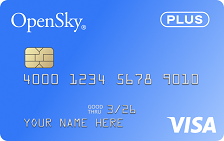
OpenSky® Plus Secured Visa® Credit Card
- 28.99% (Variable) Regular Purchase APR
- 28.99% (Variable) Cash Advance APR
At a Glance
Building credit without hidden fees is a breeze with the OpenSky® Plus Secured Visa® Credit Card. You can build credit, graduate to unsecured credit, and boost your financial knowledge base while paying $0 in annual fees.
- Best Benefits
- Rates & Fees
- Why Should You Apply?
- No annual fee – keep more money in your pocket!
- No credit check required – 89% approval rate with zero credit risk to apply!
- Earn up to 10% cash back on everyday purchases
- Boost your credit score fast—2 out of 3 OpenSky® cardholders see an average increase of 47 points after 6 months
- Track your progress with free access to your FICO® score in our mobile app
- Build your credit history with reporting to all three major credit bureaus: Experian, Equifax, and TransUnion
- Seamless payments—add your card to Apple Pay, Google Pay, and Samsung Pay
- Start with as little as $300 – Secure your line with a refundable security deposit
- Fast and easy application—apply in minutes with our mobile-first experience
- Flexible payment options—pick a due date that works for you
- More time to fund—spread your security deposit over 60 days with layaway
- Join 1.6 million+ cardholders who have used OpenSky® to build better credit!
- Regular Purchase APR: 28.99% (Variable)
- Cash Advance APR: 28.99% (Variable)
- Cash Advance Transaction Fee: Either $10 or 3% of the amount of each cash advance, whichever is greater
- Annual Fee: $0
- Foreign Transaction Fee: 3% of the transaction amount in U.S. dollars
- Late Payment Penalty Fee: Up to $41
- Return Payment Penalty Fee: Up to $40
- Minimum Deposit Required: $300
- You want a secured credit card but don't want to pay an annual fee
- You have at least $300 available for a security deposit (up to $3,000)
- You are serious about building credit and plan to pay on-time each month
- You want to graduate to unsecured credit
The OpenSky® Plus Secured Visa® Is a no annual fee secured credit card that can help you build credit with on-time payments each month. Even better, there’s no credit check needed so you can improve your credit without a ding to your credit. Add to that the chance to graduate to an unsecured OpenSky Gold Visa in as little as six months (with on-time payments), and you have a credit card that is an ideal credit-building tool for anyone with bad credit or no credit history.
Best for Rewards: Current Build Card
Current Build Card
Current Build Card
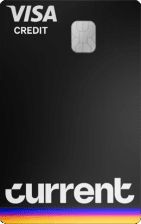
Current Build Card
- 0.00% Regular Purchase APR
- 0.00% Cash Advance APR
At a Glance
The Current Build Card is a no annual fee secured card that builds credit while earning up to 7X points and 4% APY on savings. The card features no account minimums, no overdraft fee, and spending insights to help your build credit.
- Best Benefits
- Rates & Fees
- Why Should You Apply?
- Build credit with no minimum deposits and no annual fee
- Up to 4% APY on savings
- Earn up to 7X points on purchases with over 14,000 merchants
- No overdraft fee
- Regular Purchase APR: 0.00%
- Cash Advance APR: 0.00%
- Annual Fee: $0.00
- Foreign Transaction Fee: 3% of the transaction amount in U.S. dollars
- Late Payment Penalty Fee: 3% of any Total Due balances outstanding and past due for two or more billing cycles
- You are new to credit and want an easy way to begin building credit
- You plan on utilizing Current's spending insights to help you save money
- You don't want to pay an annual fee to earn rewards
The Current Build Card makes building credit simple. The secured card features no annual fee, up to 4% APY on savings, and the ability to link your checking account to ensure you never miss a payment through overdraft protection.
But what’s really cool about Current is it lets you earn impressive points while building credit. Cardholders earn up to 7X per $1 spent with over 14,000 participating merchants. Available merchants are visible in the Current mobile app. All other eligible purchases earn 1X per $1 spent, with points redeemable for cash in your Current account. You can find all offers near you on the map directly in the Current app. Points never expire, and there is no cap on the total number of rewards earnable with the card.
Current also makes buying crypto easy by offering streamlined buying and selling of crypto through the Current mobile app. There are no hidden charges or crypto trading fees; you don’t need to purchase an entire coin, either.
Best for No Credit Check: Chime Credit Builder Secured Visa® Credit Card
“No Credit Check” credit cards are somewhat misleading. When a card offer says no credit check is needed, it means no hard inquiry.
Credit checks are broken down into two categories: hard and soft. A hard inquiry is when a lender pulls one of your credit reports to see your entire credit history. These inquiries are what most credit card, mortgage, and other loan applications require. A hard inquiry will appear on your credit report and remain there for two years.
A soft inquiry, in comparison, doesn’t require a full pull of your credit. When a lender does a soft pull, they check your basic credit information. These pulls occur when you check your credit score through free apps or when a potential employer runs a background check. Soft inquiries don’t impact your credit score.
Chime Credit Builder Secured Visa® Credit Card
Chime Credit Builder Secured Visa® Credit Card
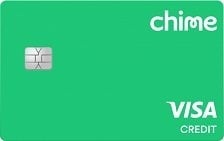
Chime Credit Builder Secured Visa® Credit Card
- See Terms Regular Purchase APR
- See Terms Cash Advance APR
At a Glance
The Chime Credit Builder Visa® Secured Credit Card is a credit-builder product from Chime – a fintech that offers an assortment of financial products and services with no hidden fees. The secured card functions harmoniously with Chime’s other products and services, including their high-yield savings account.
- Best Benefits
- Rates & Fees
- Why Should You Apply?
- No annual fee or interest
- No credit check performed when applying
- No minimum security deposit required
- Ideal for everyday purchases to help build credit with regular on-time payments
- Checking account required
- Regular Purchase APR: See Terms
- Cash Advance APR: See Terms
- Cash Advance Transaction Fee: $2.50 per transactio
- You're seeking to build your credit score
- You don’t want a credit check on your credit report
- You don’t want the hassle of a minimum security deposit
- You want access to high yield savings to help your money grow
- You don’t want to pay any additional fees

Chime Credit Builder Secured Visa® Credit Card
Terms & ConditionsThe Chime Credit Builder Visa® Secured Credit Card is an exciting member of the Chime family. The card is unique because it is a charge card tied to a direct deposit, meaning cardholders won’t have to worry about late fees or missed payments. Even better, Chime regularly reports payment history to the major credit bureaus. This regular reporting is essential for building a good credit score – fast!
Another great feature of Chime is the complete lack of hidden fees. There are no minimum balance requirements, service fees, overdraft fees, or foreign transaction fees – a great feature for anyone who wants a credit card to travel the globe and build credit simultaneously. On top of no overdraft fees, Chime provides $200 overdraft protection via its Spot Me feature. Spot Me only applies when the account holder makes $500 in qualifying direct deposits to the Chime Spending Account each month. Initially, new cardholders will have overdraft protection of $20, increasing over time.
Here are a few more secured card options with no credit check to worry about:
| First Progress Platinum Elite | OpenSky® Secured Visa® | Self Visa® | Merrick Secured Card | |
|---|---|---|---|---|
| Annual Fee | $29 | $35 | $25 | $36 |
| Min. Deposit | $200 | $300 | $100 | $200 |
| Network | Mastercard | Visa | Visa | Mastercard |
Unsecured Credit Cards
Despite what you might think, there are unsecured credit cards for bad credit scores. Unsecured credit cards for bad credit like these have no deposit requirements. These credit cards are designed to help you rebuild your credit history and demonstrate responsible credit management. While they may not offer the same rewards and benefits as premium credit cards, they provide an opportunity to improve your financial situation and work towards obtaining better credit cards in the future.
Best for No Annual Fee: Mercury™ Mastercard®
Finding no annual fee options for bad credit can be challenging, but they do exist. One such card is the Mercury™ Mastercard®, which offers a variable annual fee as low as $0 for selected applicants.
Mercury™ Mastercard®
Mercury™ Mastercard®
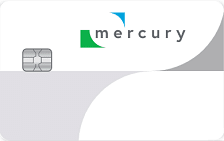
Mercury™ Mastercard®
- 29.99% variable based on the Prime Rate Regular Purchase APR
- 29.99% variable based on the Prime Rate Balance Transfer APR
- 29.99% variable based on the Prime Rate Cash Advance APR
At a Glance
The Mercury® Mastercard® is a no annual fee credit card for those hoping to boost their credit score while potentially earning decent rewards. The card from Mercury Financial is only available by pre-selection and an invitation code to apply, meaning other credit-builder options might make more sense.
- Best Benefits
- Rates & Fees
- Why Should You Apply?
- No annual fee
- Free access to FICO score
- Reports to the three main credit bureaus
- $0 Fraud Liability if your card is lost or stole
- Regular Purchase APR: 29.99% variable based on the Prime Rate
- Balance Transfer APR: 29.99% variable based on the Prime Rate
- Balance Transfer Transaction Fee: Either $5 or 4% of the amount of each balance transfer, whichever is greater
- Cash Advance APR: 29.99% variable based on the Prime Rate
- Cash Advance Transaction Fee: Either $10 or 5% of the amount of each cash advance, whichever is greater
- Annual Fee: $0 to $79
- Foreign Transaction Fee: 0% to 3% of the transaction amount in U.S. dollars
- Late Payment Penalty Fee: Up to $41
- Return Payment Penalty Fee: Up to $41
- You have had credit issues in the past
- You want an unsecured card that doesn’t charge an annual fee
- You plan to pay your balance in full every month
- You have received a pre-approval letter from Mercury™
The Mercury Card is invite-only, meaning you cannot apply unless you receive a presorted mail offer with a reservation code. Despite that, it provides a competitive APR, basic rewards (for some), and the chance to see if you might be eligible for an increase at regular credit line reviews. The card also benefits from the global acceptance of the Mastercard payment network, access to a helpful Mercury mobile app, and the ability to spend reward points at Amazon on checkout.
Related Article: Credit Cards That Don’t Require a Preapproval Mail Offer
Best for Rewards: Aspire® Cashback Rewards Credit Card
Earning rewards with deep subprime credit might sound like a fantasy or pipedream, but it is possible. These bad credit credit cards might not offer lounge access or other perks, but they do provide basic cash-back rewards or points that can be used to offset purchases on the account. That, in turn, can save you money on your monthly budget, which, for those struggling to improve their credit, is as big a reward as 100,000 points.
Aspire® Cashback Rewards Credit Card
Aspire® Cashback Rewards Credit Card
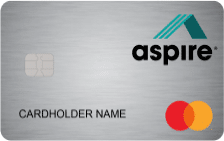
Aspire® Cashback Rewards Credit Card
- *See Terms Regular Purchase APR
- *See Terms Balance Transfer APR
- *See Terms Cash Advance APR
At a Glance
You can earn up to 3% cash back while building credit with The Aspire® Cashback Rewards Credit Card. The card, from the Bank of Missouri, provides unlimited 3% cash back on gas station, grocery store, and utility purchases and 1% back on all other eligible purchases.
- Best Benefits
- Rates & Fees
- Why Should You Apply?
- Earn a 3% Cash Back Reward on Gas, Groceries and Utilities‡
- Earn a 1% Cash Back Reward on all other eligible purchases‡
- Up to $1,000 credit limit subject to credit approval*
- Pre-qualify without affecting your credit score
- No security deposit
- Good anywhere Mastercard® is accepted
- Free access to your credit score †
- $0 fraud liability**
- *Pre-qualified means that information in your credit report indicated that you met certain pre-established credit criteria. Final approval is not guaranteed if you do not meet all applicable criteria (including adequate proof of ability to repay). Income verification through access to your bank account information may be required.
- † Your credit score will be available in your online account 60 days after your account is opened. (Registration required) The free VantageScore 4.0 credit score - provided by TransUnion® is for educational purposes only and may not be used by The Bank of Missouri (the issuer of this card) or other creditors to make credit decisions.
- ‡You will earn a 3% cash back reward on eligible gas, grocery, and utility purchases/payments and you will earn a 1% cash back reward on all other eligible purchases, which are for goods and services minus returns and other credits. Rewards will be earned when the transaction posts to your account and will remain as long as the purchase is not returned. Purchases do not include fees or interest charges, balance transfers, cash advances, or purchases of other cash equivalents. Rewards are not earned for pending transactions
- **Fraud liability subject to Mastercard® rules
- Regular Purchase APR: *See Terms
- Balance Transfer APR: *See Terms
- Balance Transfer Transaction Fee: 3% of the amount of each transfer
- Cash Advance APR: *See Terms
- Cash Advance Transaction Fee: Either $5 or 5% of the amount of each cash advance, whichever is greater
- Annual Fee: As low as $85
- Foreign Transaction Fee: 3% of each transaction amount in U.S. dollars
- Late Payment Penalty Fee: Up to $40
- Return Payment Penalty Fee: Up to $40
- You want to build credit while spending on monthly utilities and purchases
- You want quick pre-qualification to know if you can be approved
- You plan to pay your balance in full every month
- You prefer unsecured credit to a security deposit requirement
The Aspire® Cashback Rewards Credit Card is one such rewards card for subprime credit. Cardholders earn 3% back on gas, grocery, and utility bill payments using the card, plus 1% back on all other eligible purchases, with no cap on the total rewards earned.
Here’s how the Aspire Cashback Rewards Mastercard stacks up with another offer from Credit One:
| Aspire® Cashback | Credit One® Platinum | |
|---|---|---|
| Bonus categories | Gas, groceries, utilities | Gas, groceries, utilities |
| Bonus cash back rate | 3% back | 1% back |
| All other purchases | 1% back | N/A |
| Pre-qualify | Yes | Yes |
| Initial credit | $350 | $300 |
| Network | Mastercard | Visa |
| Annual fee | $49 to $175 the first year; up to $49 thereafter | $75 for the first year. After that, $99 annually (Billed at $8.25 per month) |
The Revvi Card is another option for basic rewards. The card provides an initial credit line of $300, the features of a full-fledged Visa®, and 1% back on all payments made to the card.
Best for Credit Limit Increases: Surge® Platinum Mastercard®
Plenty of credit cards provide yearly or occasional account checks to determine if the cardholder is eligible for a credit limit increase. Other cards, like the Surge® Platinum Mastercard®, bake-in their credit increases to let new accounts know precisely when they can expect more credit.
Surge® Platinum Mastercard®
Surge® Platinum Mastercard®
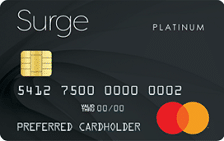
Surge® Platinum Mastercard®
- 35.90% (Fixed) Regular Purchase APR
- See website for details* Cash Advance APR
- See website for details* Intro Purchase APR
At a Glance
The Surge Mastercard® can be an ideal pre-qualification option if you need to repair or continue building your less-than-perfect credit score. Though it bears annual and maintenance fees, it does, however, provide attractive perks for qualified cardholders.
- Best Benefits
- Rates & Fees
- Why Should You Apply?
- Up to $1,000 Initial Credit Limit
- See if you Pre-Qualify with No Impact to your Credit Score
- Less than perfect credit? We understand. The Surge Mastercard is ideal for people looking to rebuild their credit.
- Unsecured credit card requires No Security Deposit
- Perfect card for everyday purchases and unexpected expenses
- Monthly reporting to the three major credit bureaus
- Access to your Vantage 3.0 Score from Experian (when you sign up for e-statements)
- Use your card everywhere Mastercard is accepted at millions of locations
- Enjoy peace of mind with Mastercard Zero Liability Protection for unauthorized purchases (subject to Mastercard guidelines)
- Intro Purchase APR: See website for details*
- Regular Purchase APR: 35.90% (Fixed)
- Cash Advance APR: See website for details*
- Cash Advance Transaction Fee: Either $10 or 3% of the amount of each cash advance, whichever is greater
- Annual Fee: $75 - $125
- Foreign Transaction Fee: 3% of each transaction in U.S. dollars
- Late Payment Penalty Fee: Up to $41
- Return Payment Penalty Fee: Up to $41
- You have fair or poor credit and need to build or repair your credit ratings
- You prefer a pre-qualification card that will immediately inform you whether you would be approved prior to applying
- You don’t want a secured credit card or can’t afford a security deposit
- You want a card that reports activity to the three major credit bureaus
- You want the security of an optional credit protection program
Depending on the applicant’s creditworthiness, Surge offers starting credit limits between $300 and $1,000. While $300 is fairly low, that credit line doubles after as few as six months. Use the card responsibly (meaning you make your payments on time every month and keep your overall credit use low) and make your first six monthly minimum payments on time, and Surge will raise your credit limit – doubling your purchasing power.
Here are a few more unsecured credit cards that offer credit limit increase opportunities:
| Milestone Mastercard | Indigo® Mastercard® | Destiny Mastercard | |
|---|---|---|---|
| Initial credit line | $700 | $700 | $700 |
| Annual fee | $175 the first year; $49 thereafter | $175-$199 | $175 the first year; $49 thereafter |
Merchandise Cards
Building credit is challenging. Repairing credit is just as tough, if not more so. Many lenders are wary of applicants with or no credit. What about those who want a credit card to build credit but don’t have the money for a security deposit? When a person wants to establish a credit history but can’t set aside the money for a deposit on a secured card, catalog and merchandise cards are a potential option.
Merchandise cards (also occasionally called catalog cards) are a great choice for those with a limited or no credit history. Why choose catalog store credit cards or merchandise cards for bad credit? Here are three of the top reasons to consider a catalog card:
Catalog cards are a unique type of retail payment card. These are not credit cards but provide unsecured credit at an individual online store – or online catalog. Unlike mainstream credit cards, catalog merchandise cards are closed-loop, meaning they may only be used at the store associated with them.
There are several merchandise cards on the market today. Depending on the card’s issuer, these cards offer different benefits to account holders.
Bad Credit Resources
Your credit score plays a crucial role in your financial life. It is a numerical representation of your creditworthiness and is used by lenders to assess the risk of lending money. A high credit score indicates that you are responsible with credit, while a low credit score suggests that you may have had difficulties managing your debts.
A bad credit score can make obtaining credit cards or loans challenging. Lenders are hesitant to extend credit to individuals with a history of late payments, defaults, or other negative marks on their credit reports. However, this doesn’t mean that you’re completely out of luck. Credit cards are specifically designed for people with bad credit, providing an opportunity to rebuild your credit history and improve your financial situation.
Tips for Repairing Credit
Bad credit doesn’t mean you can’t get credit. A subprime credit score means you must work on repairing your credit with the right credit cards. The options above can help you quickly repair your credit if you follow the correct advice. This advice includes:
| ① Check your credit score | The first thing you should do is check your credit score to see where you stand. You might already know your credit score is bad, but how far down on the scale, does it go? Knowing how fast you can improve your credit from “bad” to “fair” is crucial to making a financial plan of attack. |
| ② Get a credit card for subprime credit | Part of boosting your credit score is increasing your use of credit. For those with bad credit, this may seem counter-intuitive. Fortunately, there are many unsecured credit cards for poor credit and secured cards that can help you repair your credit score. |
| ③ Pay on time each month | As seen in the scoring models, payment history is the biggest factor in your credit score. Because payment history is so important, paying your credit card bill on time each month is essential to boosting sub-prime credit. Missed payments stay on a credit report for seven years. |
| ④ Keep your credit use low | Credit utilization is as important as paying on time. Credit utilization shows lenders how you use your credit. Those who keep their credit use below 30% can expect their score to improve, while those who use less than 10% can expect a much faster score rise. |
Expanding your credit mix is another tip, but it might not always be applicable in all credit situations. A mix of credit types, such as credit cards, loans, and mortgages, can positively impact your credit score. However, only take on new credit when necessary and avoid excessive debt.
How to Choose the Right Card for You
When selecting a credit card, it’s crucial to consider your specific needs and financial goals. Consider interest rates, fees, credit reporting, rewards, and benefits. It’s also essential to compare multiple credit card options to ensure you get the best terms available. Remember, the goal is to use the credit card to rebuild your credit and improve your financial situation.
Here’s what to consider when comparing credit cards:
| APR | Credit cards for fair credit and below typically carry high interest rates on purchases. Secured cards typically feature a fixed rate APR, whereas many unsecured cards feature a variable rate that can rise as high as 36%. Carrying a balance will incur interest which can quickly add up and overwhelm you if you are not careful. | ||
| Annual fee | Does the card charge an annual fee? Expect an annual fee with most unsecured credit cards for fair credit scores, with rates varying between $25 and $125 per year. | ||
| Rewards | Does the card provide rewards in the form of cash back, points, or miles? Carefully weigh the rewards structure against the credit limit and APR of the card. Carrying a balance with a subprime credit card is not advise, so always try to limit spending to only what you can afford to pay off immediately. | ||
| Credit increases | If you use your card responsibly and pay off your balance each month, you may qualify for a credit limit increase. These credit limit increases are based on sound financial habits and a steady payment history free from late or missed payments. | ||
Secured Cards
When looking for secured credit cards to improve credit, there are certain things to consider. First, note the minimum deposit. This deposit is what makes a secured card “secured.” The minimum deposit varies significantly and can distinguish between good and bad options. Look for a secured card with a minimum deposit of $200. This deposit level makes the card much more affordable for those with limited access to funds.
Here’s what to look for in a secured card:
| Security deposit | Secured credit cards require a deposit to open. This deposit acts as the collateral for the loan (it “secures” the loan, hence “secured card”) and the credit limit. If you deposit $200, your credit limit will be $200, for example. Most secured cards require a deposit of around $200 to open, but some, like Self, only require $100. |
| Annual fee | Having to pay an annual fee for a secured credit card doesn’t automatically make it unfavorable, though there are many available that waive said charge. If you find a credit card with the limit, APR, and perks that you prefer, paying an annual fee isn’t a bad thing if the benefits are greater than the cost. Depending on your creditworthiness, you may be able to find a secured credit card that balances both of these aspects perfectly. |
| Eligiblity | The best credit card applications use language that is clear and easy to understand. For example, select card applications may charge a processing fee that other similar cards don’t. This threshold is removed completely when applying for certain secured credit cards, as the deposit you’ll be making covers the risk that the issuer is taking on. While not the case for all secured credit cards, there are some available to you even with a really bad credit rating. |
| Credit tools | The time that you’ll be spending establishing or building up your credit with the responsible use of a secured credit card is not the time that you should be forgetting to make even a single account payment. Doing so may hurt your credit score and increase the time that it will take you to eventually qualify for an unsecured credit card. Nearly all credit card issuers and financial institutions offer nowadays offer online banking features to help account holders keep track of their expenses 24/7. There are also mobile apps that can be installed on your smartphone and other online electronic devices from these institutions that will alert you if you are approaching your limit or have a payment due soon, making the process of building your credit more convenient than ever before. |
| Upgradability | If you use your secured credit card responsibly and pay off your balance each month, in a few years or sooner, you may qualify for an unsecured credit card. These financial products do not require a deposit on your part, and generally offer a better APR and much more enticing benefits, such as a higher return on travel rewards points and cash back on dining and entertainment purchases. Some issuers may automatically switch you over to an unsecured credit card after you’ve established your credit and improved your score. Often you will have to apply for these cards on your own, though you’ll be in a better position to qualify for the unsecured card that you want with your improved credit score in hand. |
Expanding your credit mix is another tip, but it might not always be applicable in all credit situations. A mix of credit types, such as credit cards, loans, and mortgages, can positively impact your credit score. However, only take on new credit when necessary and avoid excessive debt.
Alternatives for Bas Credit
If you cannot obtain a credit card due to bad credit or prefer alternative financial tools, options are available to help you manage your finances effectively. Here are a few alternatives worth considering:
Secured Personal Loans
Similar to secured credit cards, secured personal loans require collateral, such as a savings account or a certificate of deposit. These loans can establish or rebuild credit while providing access to funds.
Credit-builder loans are another option. These loans are specifically designed to help individuals build or improve their credit. The funds are typically held in a savings account or certificate of deposit until the loan is repaid.
Prepaid and Debit Cards
Prepaid debit cards function similarly to credit cards but do not require a credit check. These cards allow you to load funds onto the card, which can be used for purchases and bill payments. Debit cards are a great option for people with bad credit or no credit history, thanks to an ever-increasing number of features with these payment cards – including rewards and credit building.
Debit cards offer a safer alternative to carrying cash. In case of theft or loss, the card can be easily reported and deactivated, preventing unauthorized transactions. Additionally, debit cards are widely accepted for online purchases, enabling individuals to shop conveniently from the comfort of their homes.
Related Article: How to Build Credit Without Credit Cards
Conclusion
Despite having bad credit, you can still obtain credit cards that cater to your needs and help you rebuild your credit history. You can take steps toward improving your financial situation by understanding the impact of credit scores, the importance of credit cards for financial freedom, and how to use them responsibly. Utilize the best credit cards for bad credit, work on improving your credit score, and explore alternative financial tools if new credit is necessary. You can unlock the path to financial freedom and secure a brighter future with determination and smart financial choices.
What’s Next: Your Ultimate Guide to Retail Credit Cards
Editorial Disclosure – The opinions expressed on BestCards.com's reviews, articles, and all other content on or relating to the website are solely those of the content’s author(s). These opinions do not reflect those of any card issuer or financial institution, and editorial content on our site has not been reviewed or approved by these entities unless noted otherwise. Further, BestCards.com lists credit card offers that are frequently updated with information believed to be accurate to the best of our team's knowledge. However, please review the information provided directly by the credit card issuer or related financial institution for full details.

